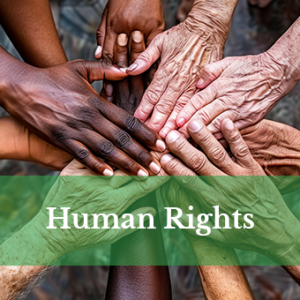
What we’ve learned about campaigning against ageism – experience from the field.
Presenter:
Marlene Krasovitsky, EveryAGE Counts Ltd, Australia
Abstract
As part of the Global Campaign to Combat Ageism’s suite of resources (https://www.who.int/teams/social-determinants-of-health/demographic-change-and-healthy-ageing/combatting-ageism)
the World Health Organisation produced Campaigning to Tackle Ageism: Current practices and suggestions for moving forward (https://www.who.int/publications/m/item/campaigning-to-tackle-ageism).
Campaigning to Tackle Ageism aims to inspire and support the development of campaigns to tackle ageism. Based on the practices examined at that time, the key evidence-based themes that emerge include:
• Using research
• Fostering community engagement
• Planning strategically
• Implementing key activities
• Communicating effectively.
A number of recommendations are suggested for moving forward for each of these themes including:
• Including research throughout the entire campaign
• Knowing what, when and how best to measure
• Including representatives from affected communities as co-researchers
• Attending to intersectionality
• Involving decision makers and key organisations
• Intergenerational activities
• Developing a communications strategy.
This paper will draw on the framework and findings of Campaigning to Tackle Ageism as well as EveryAGE Counts Foundational Research (https://www.everyagecounts.org.au/research) and focus on the actual experience of one of the first national campaigns to tackle ageism, Australia’s EveryAGE Counts campaign www.everyagecounts.org.au
Established in 2018, EveryAGE Counts is a national coalition of organisations, and grassroots campaign of individuals dedicated to ending ageism experienced by older people, and building an Australia that no longer tolerates it.
EveryAGE Counts’ goal is to set strong foundations for current and future generations to age well. The campaign’s vision is a society where every person is valued, connected and respected regardless of age.
The Campaign’s overarching strategy is to work on two fronts: to shift deeply held and highly accepted negative social norms and attitudes to ageing and older people, but also to challenge structural barriers. Working on these dual strategies is critical because they are both pre-requisites to success for each other.
Action in each reinforces change in the other so the Campaign addresses both social attitudes (how we think, act and feel about getting older and older people) and structural barriers that are underpinned by ageism (in work, aged care, health, income security and so on) in parallel.
The presentation will use EveryAGE Counts as a case study to examine where and why EveryAGE Counts adhered to, or deviated from, the WHO’s guidance.
For example, the presentation will include the practical considerations of:
• Foundational research and why not all research efforts are equal
• What we learned from other movements that have changed the way we think, feel and act
• Collaborating to develop a theory of change
• Why EveryAGE Counts focused on older people
• Timeframes and sustainability
• Growing our base – how to make friends and influence people
• The importance of cross-party political support
• Communications, messaging and engagement
• The difficult but essential question of evaluation and measuring impact.
The paper will outline the principles, tactics and lessons learned about campaigning against ageism. It will also present what went well and what didn’t, what happened when the money ran out, and what we wish we’d done differently.
Bio(s):
Dr Marlane Krasovitsky is a passionate advocate and campaigner against ageism and is currently a consultant to the World Health Organisation’s Global Campaign to Combat Ageism.
Prior to joining the WHO, Marlane was the Director and Co-Chair of EveryAGE Counts, Australia’s coalition-led campaign against ageism. Previously, Marlane was the Director of Willing to Work, the National Inquiry into Employment Discrimination Against Older Australians and Australians with Disability with the Australian Human Rights Commission.
Marlane has also worked in Commonwealth and State Governments in Australia in a range of policy and operational roles as well as a number of major public inquiries including the Review into the Treatment of Women in the Australian Defence Force and the Special Commission of Inquiry into Child Protection Services in NSW.
Marlane has a PhD from Sydney University, an Executive Masters of Public Administration (ANZSOG), a Masters of Business Administration (University of Technology, Sydney) and is a registered psychologist.
